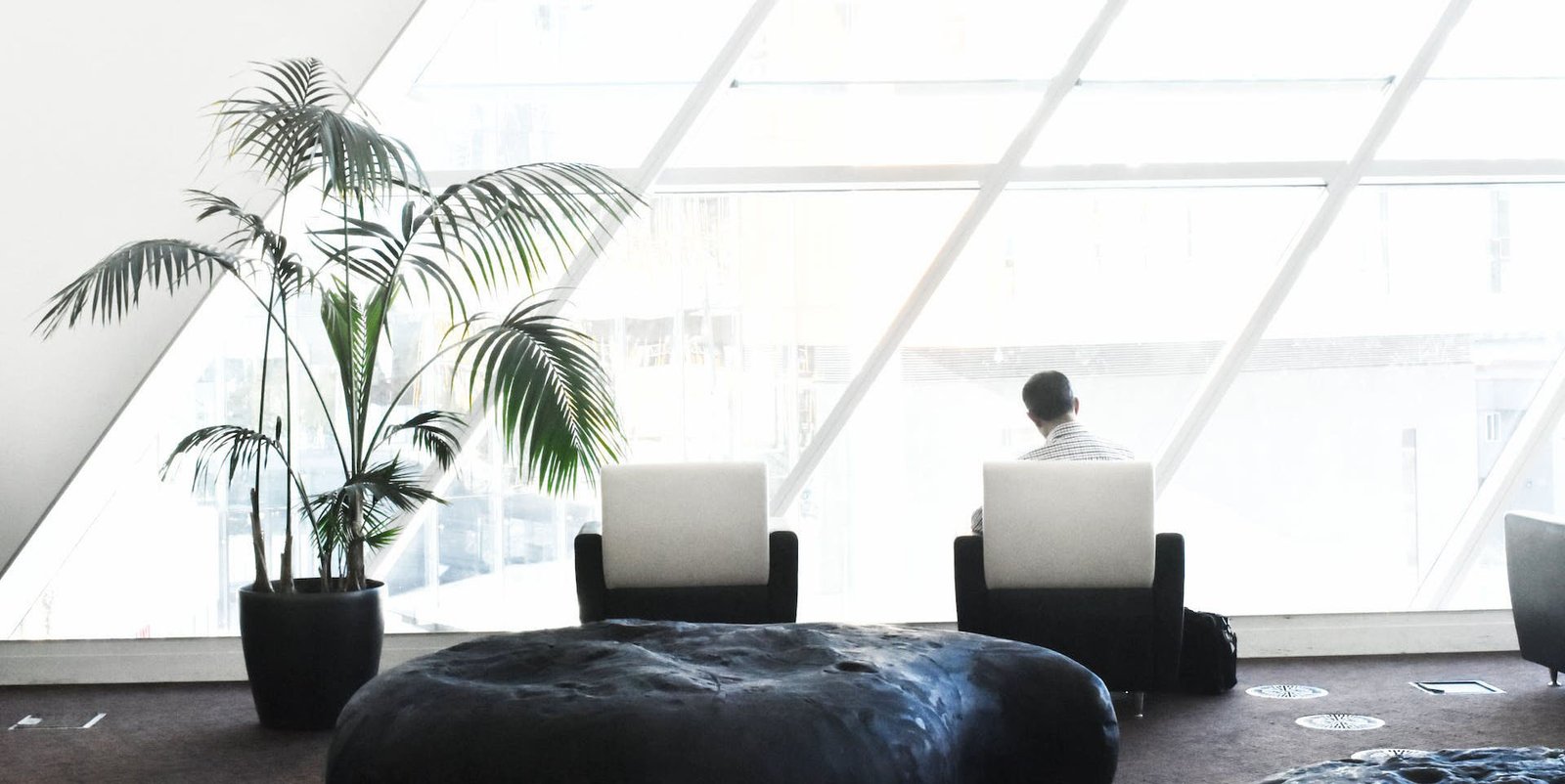The modern workplace is a paradox. Gleaming glass towers and overflowing coffee bars paint a picture of dynamism and opportunity. Yet, beneath the sheen, a darker side festers. We celebrate a “hustle and grind” culture, but fail to acknowledge the cost it extracts in terms of well-being and human connection.
Heavy workloads, long hours, tight deadlines, and constant pressure to deliver your job promise, are synonymous with modern work culture. Unfortunately, these are the right mix of ingredients leading to high doses of mental and physical weariness and burnout, hitting you with its toll—while gradually edging you to the pit of chronic stress!
You are not a cog in the machine. You are a human with needs, emotions, and vulnerabilities. Battling this growing modern workplace stigma (or dilemma), to strive for a healthy and productive work-life balance is certainly a battle worth fighting, which is becoming challenging, each day, if left unaddressed.
Here’s a guide for you to hack the modern workplace culture, with a toolbox of strategies and tips, to recognise the modern workplace culprits and start equipping yourself with mental resilience to emerge victorious—stronger, happier, and more fulfilled.
The culprits—the dark side of modern work culture
Picture this: you’re stuck on a hamster wheel, spinning faster and faster with no way to get off. Work calls ping on your phone at dinner, deadlines loom like storm clouds, and emails pile up like unread newspapers. This, is the modern workplace, a landscape brimming with productivity demands and an invisible enemy—chronic stress.
But let’s unpack this villain, dissect its nefarious tools. First, there’s the technological tether, forever keeping us on duty with endless notifications and the pressure to “always be reachable”. These mobile devices, invading our personal sanctuaries, blurring the lines between work and life, were supposed to be our assistants—buddies—making our life that much better, creating the perfect bliss.
Then comes the workload juggernaut, piling tasks onto our plates until they overflow. Deadlines? Don’t even get us started—those looming guillotines constantly threaten to chop off our heads if we miss a beat.
And what about the elusive work-life balance? It’s become a mythical creature, whispered about but rarely seen. We strive for it, yearn for it, but alas, it often melts away like a mirage in the desert of responsibilities.
Striking a healthy balance is crucial for our well-being, but modern workplaces often prioritise productivity over personal time. This leaves us struggling to set boundaries and nurture ourselves outside the office walls.
Finally, there’s the toxic troll—the insidious monster of discrimination and harassment. This ugly creature can poison even the most positive work environment, leaving us feeling isolated, undervalued, and even traumatised.
Health problems (physical and mental)
Chronic stress from deadlines, expectations, and competition, can wreak havoc on the body, leading to persistent anxiety, irritability, difficulty concentrating, headaches, muscle tension, fatigue, digestive issues, sleep disturbances, and even weakened immunity.
Over time, it can contribute to the development of chronic health conditions like high blood pressure, heart disease, diabetes, and stroke—especially when combined with unhealthy lifestyle choices.
The constant pressure and demands take a toll on mental well-being as well, increasing the risk of impairing cognitive abilities like memory, concentration, and decision-making, leading to decreased productivity and performance at work, depression, burnout, and even suicidal thoughts.
Your immune system can also get suppressed, making you more susceptible to illnesses, and exacerbating existing digestive issues or triggering new ones like ulcers and irritable bowel syndrome. Chronic stress can negatively impact libido and sexual function.
Repetitive strain injuries, back pain, and headaches are common due to poor posture, long hours spent sitting, and inadequate breaks.
Your sleep is also not spared, work-related stress and anxiety can make it difficult to fall asleep and stay asleep, leading to sleep deprivation and its associated health problems like fatigue, irritability, and weakened immunity.
Reduced ‘at-work’ productivity
Constant pressure and workload to excel, or even staying in the game, can lead to emotional exhaustion, cynicism, and decreased job satisfaction, culminating in burnout, a complete emotional and physical depletion.
Tight deadlines then lead to rushed work, mistakes, and ultimately wasted time and effort. Such glorification of long hours and relentless work can lead to burnout, impacting focus and creativity. The barrage of notifications, emails, and messages distracts from focused work, leading to constant context switching and mental fatigue.
Poor communication from managers, lack of feedback, and unaddressed concerns can demotivate employees and create a feeling of disengagement, further impacting productivity. An environment focused on individual achievement over collaboration can breed distrust and sabotage, hindering teamwork and overall project outcomes. It can also foster a negative and toxic environment, leading to conflict, decreased morale, and weak communication.
The feeling of needing to be constantly plugged in to avoid missing important updates or opportunities can lead to unnecessary multitasking and unproductive busyness. This pressure to be available 24/7 blurs work-life boundaries, causing strain and hindering personal life commitments, ultimately impacting work performance.
Then comes the sea of options for project management, communication, and work styles, leading to paralysis by analysis, delaying decision-making and project progress. Presenteeism, where employees appear busy but lack actual productivity, becomes prevalent. You make more mistakes and take longer to complete tasks. This often leads to missed deadlines, lower quality work, and ultimately, lost profits.
While offering flexibility, remote work can lead to isolation and difficulty building rapport with colleagues, impacting collaboration and knowledge sharing. You start feeling like a cog in a massive machine, with unclear purpose or impact, demotivating the team and stifling creativity and innovative thinking.
Such feelings of being overwhelmed and undervalued in the workplace can contribute to feelings of hopelessness and low self-esteem, increasing the risk of depression.
Personal and social life impacts
Work distress and exhaustion will swiftly creep into your personal life and impact relationships—yes, your self-relationship too.
Degrading level of patience, communication, and emotional availability, causes friction with your family, friends, and partners, putting unnecessary strain. People become irritable, withdrawn, and less available, both physically and emotionally.
Your quality of life decreases, as relationships erode. Bringing work stress and frustrations home ultimately spills over into arguments and creates conflict within your close, dear relationships.
“The quality of your life ultimately depends on the quality of your relationships.” (Esther Perel)
Long hours at work leave little time for your personal pursuits, hobbies, or spending quality time with loved ones, leading to feelings of isolation and neglect. When work consumes a significant portion of your time and energy, it can blur your sense of self-worth outside of work roles, leading to an identity crisis and loss of personal interests.
Even during personal time, the fear of missing out on work emails or updates usually creates guilt and prevents complete disconnection, hindering genuine enjoyment and relaxation, which you deserve. These blurred boundaries between work and personal life hinder personal growth, self-exploration and attainment.
Neglecting your social connection and community while trying to juggle your time, accelerates the feelings of isolation and loneliness, exacerbating social anxiety and leading to avoidance of social gatherings and interactions, further impacting personal connections and wellbeing.
Conquering workplace challenges: a productive and happy life
You have the power to fight back, to reclaim your well-being and sanity. These issues—villains—plague the modern workplace, giving birth to a mountain of problems to fight. But remember, you are not their prisoner.
Start by identifying your stressors. What aspects of your workplace trigger stress? Overbearing deadlines, toxic colleagues, or constant connectivity? By pinpointing the culprits, you can tailor your defences. Define your work hours, disconnect after work, and prioritise personal time. Don’t be afraid to say “no” to additional tasks if your plate is already full.
Don’t subscribe to the “hustle and grind” mentality and challenge the narrative. Remember, your worth isn’t defined by your productivity alone. Prioritise your well-being: It’s not selfish, it’s essential. Taking care of your mental and physical health is the foundation for thriving in all aspects of life.
If your workplace allows, explore remote work options or flexible hours and embrace flexibility. Create a schedule that suits your needs. Leverage employee assistance programs (EAPs): Many organizations offer confidential EAPs with counseling and support services for employees facing stress and other mental health challenges.
Start practicing mindfulness: Techniques like meditation and deep breathing can help manage stress and anxiety in the moment. Consider using apps like Headspace or Vimflo or Calm.
Invest in healthy habits: prioritize sleep, exercise, and nutritious meals. These fundamentals fuel your body and mind to handle stress effectively.
Utilise time management tools: Apps like Asana or Trello can help you organize tasks, prioritize effectively, and avoid feeling overwhelmed.
Talk to someone you trust: Sharing your struggles with a supportive friend, family member, or therapist can be a powerful stress reliever. Connect with colleagues: Build a network of supportive colleagues who understand your struggles and can offer encouragement and advice.
Advocate for change: If your workplace culture is toxic, speak up and suggest improvements. Encourage open communication and initiatives that prioritize employee well-being.
“Mental toughness is to physical as four is to one.” (Bobby Knight)
Remember, achieving a healthy work-life balance is an ongoing process that requires self-awareness, proactive measures, and a commitment to personal well-being. It’s essential to tailor these strategies to your unique situation and consistently evaluate and adjust your approach as needed.
What lies ahead: the evolving workplace
Predicting the future is tricky, but the evolving landscape of work offers some tantalizing possibilities. Buckle up, folks, the future of work is shifting gears!
Automation will take the wheel on repetitive tasks, leaving us to navigate the creative landscape. Remote and hybrid work models will become the highway, with offices transforming into bustling collaboration hubs. Well-being takes the passenger seat, with companies prioritising mental health and work-life balance, and focusing towards reskilling and upskilling initiatives.
The future workplace emphasizes a positive employee experience, sustainability, and flexible work schedules, while also incorporating augmented and virtual reality into training programs. Adaptive leadership models, health and safety measures, and a heightened emphasis on data privacy and security are shaping this evolving landscape. Diversity, equity, and inclusion are gaining prominence, and the gig economy is growing. The workforce is becoming more decentralised, with a global talent pool and a focus on flexibility. Overall, successful organisations will embrace adaptability, resilience, and a culture that values innovation, diversity, and continuous learning.
In essence, the future workplace will be dynamic, innovative, and centred on creating environments that balance organisational success with employee satisfaction and well-being. Successful organisations will be those that embrace change, foster innovation, and cultivate a culture that values diversity, flexibility, and continuous learning.
But watch out for potholes like ethical dilemmas, digital divides, inequality, and shifting leadership styles. This journey requires co-piloting, so let’s work together to build a future where work empowers, not exhausts, and technology fuels our humanity, not replaces it. So, fasten your seatbelts and get ready for a thrilling ride towards a brighter work tomorrow. Together, we can shape a workplace that benefits all, not just a select few.
—
Join the vimflo well-being initiative, using 100 years of neuroscience research to enhance your computer usage through advanced AI-based software, for a happier and better work-life balance—Free Trial (limited time only!).








